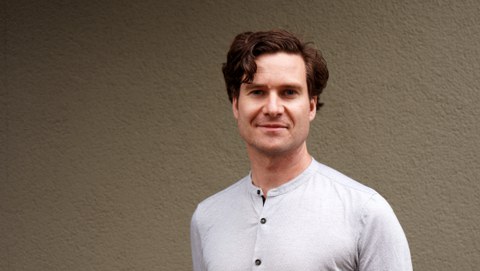Jun 03, 2024
Welcome Prof. Martin Weigert!
The Faculty of Computer Science warmly welcomes Prof. Martin Weigert as holder of the Chair of Machine Learning for Spatial Understanding at the Institute of Artificial Intelligence as of 1 June and is particularly pleased to have gained another of its graduates for one of the four strategic professorships for ScaDS.AI Dresden/Leipzig.
After graduating with a degree in Physics, Martin Weigert worked as a researcher and doctoral student in the research group of Prof. Dr. Eugene W. Myers and completed his doctorate in 2019 under his supervision on the topic of "Computational Methods for Visualization, Simulation, and Restoration of Fluorescence Microscopy Data" at the Faculty of Computer Science. Since 2019 he worked as a group leader at EPFL (Lausanne, Switzerland).
His main research interests lie in the exploration of robust and efficient machine learning methods for image-based life science applications with a focus on scalable and problem-adapted methods that enable quantitative extraction of information from large microscopy data. In particular, it is used for the recognition, segmentation and temporal tracking of biological objects such as cells, cell nuclei or gene localizations. Martin Weigert was one of the first to successfully demonstrate the effectiveness of machine learning for image reconstruction problems in fluorescence microscopy with his doctoral thesis.
The Chair of Machine Learning for Spatial Understanding will contribute to the development of robust, efficient and scalable methods for the automatic understanding of multidimensional structures and objects in microscopy images in the future.
Martin Weigert: "I am pleased to introduce myself as the new Professor of Machine Learning for Spatial Understanding at the Faculty of Computer Science and ScaDS.AI. With my work, I would particularly like to address core problems that currently limit the scalability and robustness of machine learning methods, especially in practical applications. Together we will advance our understanding of spatial-biological phenomena. I am looking forward to working together and to exciting research projects within the faculty!
We wish you every success!

